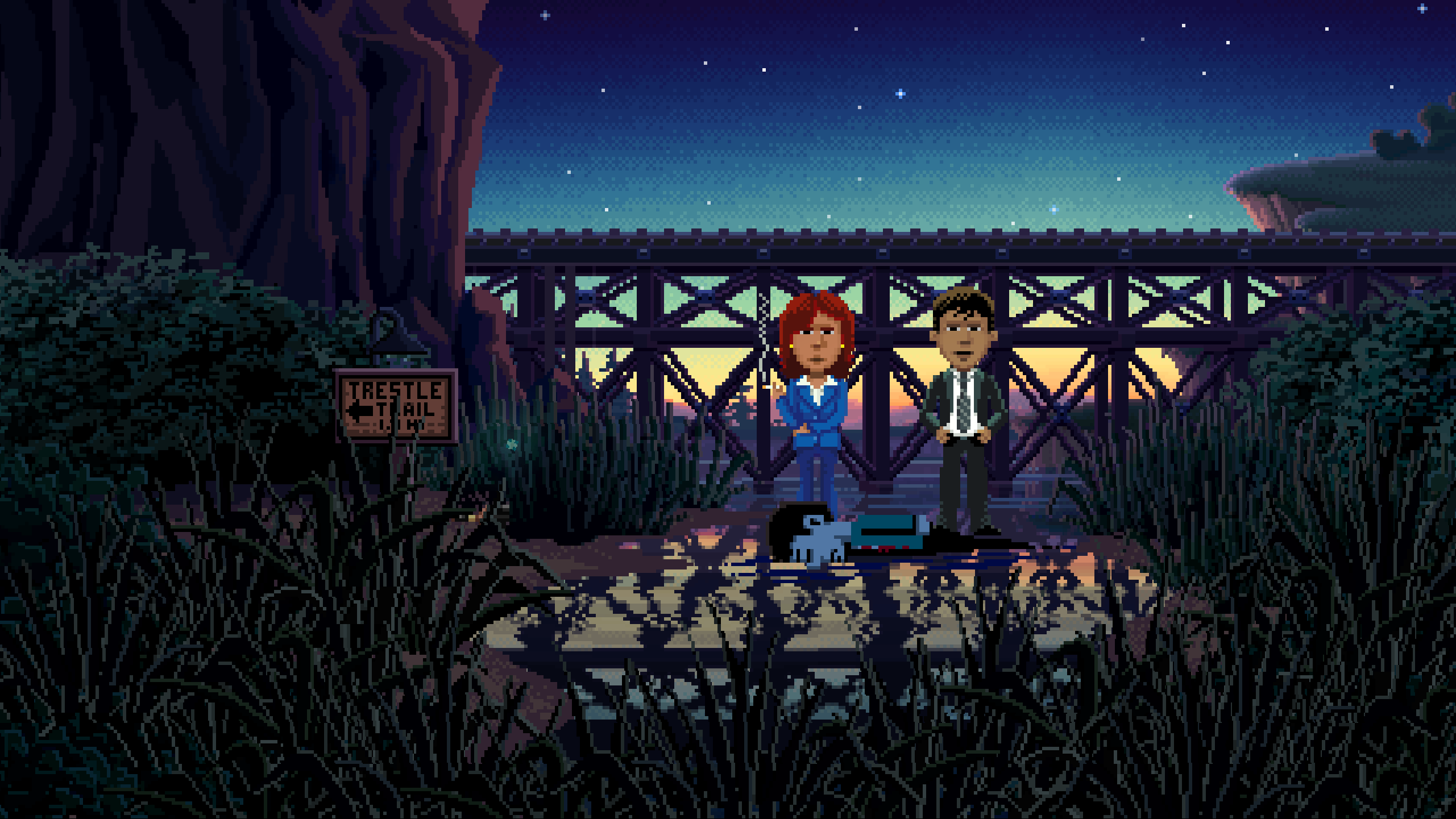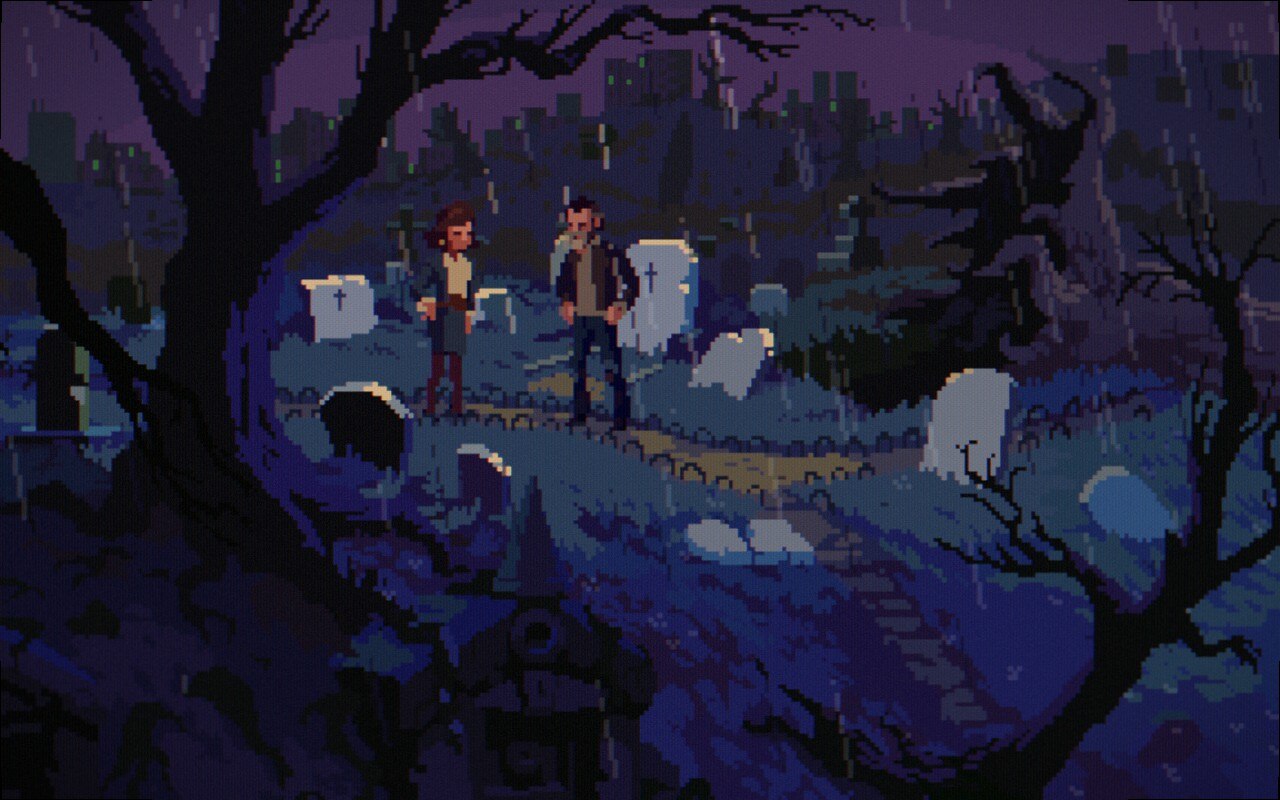Our Verdict
A quality adventure game with challenging puzzles, oddball characters, and an intriguing, mystery-laden plot.
PC Gamer's got your back
What is it? A point-and-click murder mystery.
Expect to pay £15/$20
Developer Terrible Toybox
Publisher In-house
Reviewed on GTX 1070, Intel i5-6600K, 16GB RAM
Multiplayer None
Link Official site
Federal agents Ray and Reyes are investigating a murder in the remote rural town of Thimbleweed Park. A body was found under a bridge on the edge of town, but none of the locals seem to know anything about it or who the victim is. The agents have a checklist of tasks they have to complete to crack the case, including identifying the body and finding the murder weapon. But fingering the killer won’t be easy, because this is a point-and-click adventure game.
One of the first puzzles is taking a photo of the body, which is an introduction to the concept of switching characters and swapping items between them. Ray has a camera and Reyes has the film. You get the idea. But this gentle start soon gives way to the complex, elaborate puzzle chains the genre is famous (or perhaps infamous) for.
If you’ve ever wondered if it was possible to solve a homicide with a chainsaw, some sticky tape, and a coin, you’re about to find out. But don’t start thinking about the ways those items could be combined. Untangling a single problem can span several hours in Thimbleweed Park, and all of these objects are small pieces on opposite ends of a huge, elaborate jigsaw puzzle.
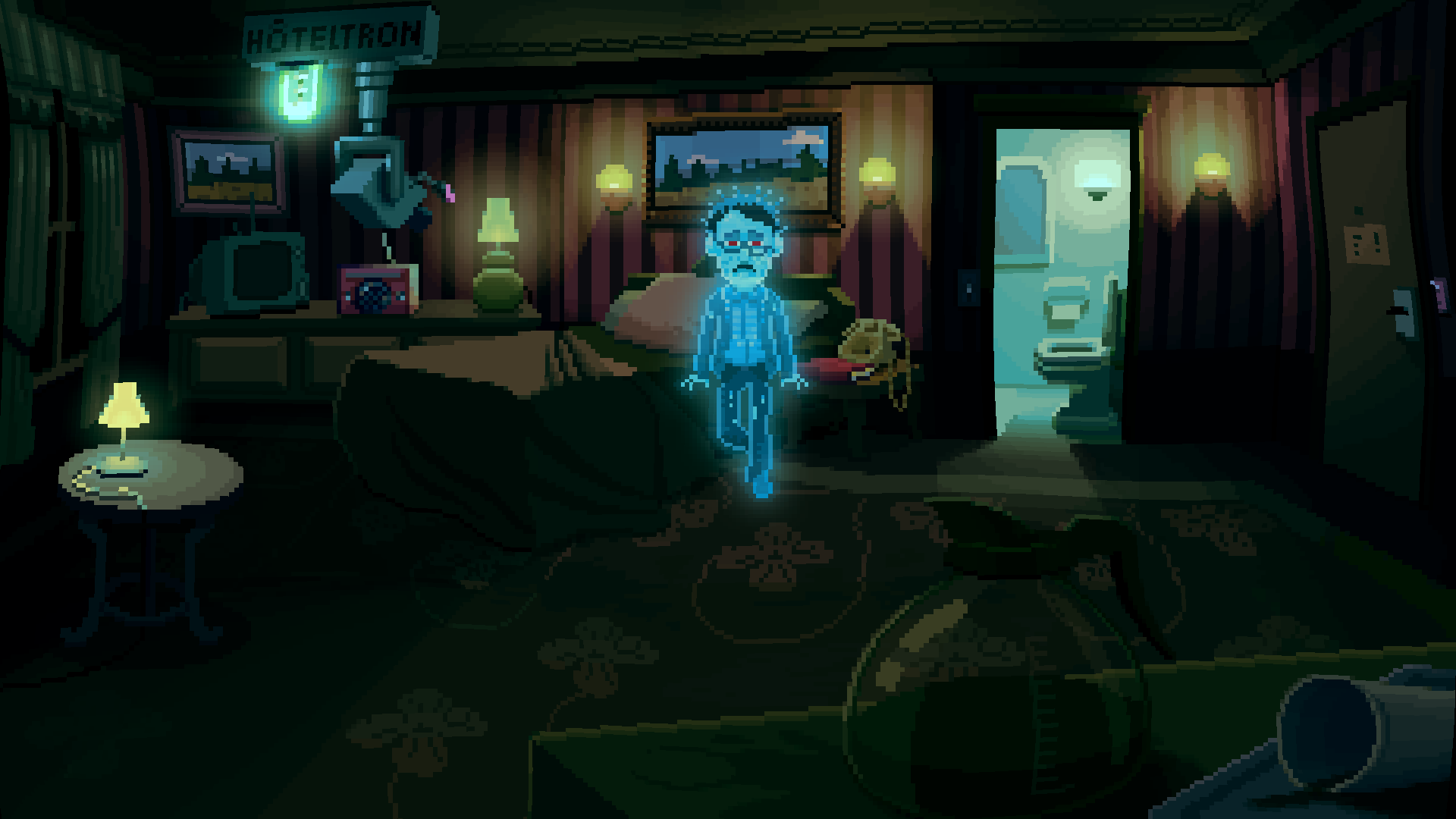
Meek pillow salesman Franklin is a ghost trapped in the hotel where he was killed
There are other playable characters. Ransome is a foul-mouthed clown living a lonely life in an abandoned circus after being cursed never to remove his makeup. Delores is a game designer who returns home to Thimbleweed Park following the death of her uncle. And meek pillow salesman Franklin, Delores’ father, is a ghost trapped in the hotel where he was killed.
The game uses a Monkey Island-style verb buffet: use, give, pick up, push, etc. But, brilliantly, Franklin has his own set of ghostly verbs, including moan, wail, and despair. He can’t touch anything, because he’s dead, but you can interact with the world by chilling the air, blowing on things, and zapping electronics. This forms the basis of some clever puzzles, and playing as Franklin is a nice change of pace from the more traditional pointing and clicking.
Each character has a lengthy to-do list in their inventory, which gives you direction without being too explicit. There’s no hint system of any kind, but speaking to people and inspecting items in your inventory is often enough to fire a synapse and steer you towards a solution. The game strikes a delicate balance between giving you subtle clues and steadfastly refusing to help you in any way, which makes solving a particularly tricky puzzle enormously satisfying. You feel like you’ve earned every victory.
You will get stuck, of course. But the game’s open structure meant I encountered no genuine brick walls in the 16 hours it took me to finish it. You can explore the town and the surrounding county (including the hotel and circus) freely, eventually unlocking a map that lets you travel between locations almost instantly. This means that if one puzzle has you utterly stumped, you can always go and attempt another one somewhere else. I found that distancing myself from a puzzle was often the best way to solve it.
But with five playable characters, four of whom have inventories stuffed with items, including many that don’t actually do anything, the game can occasionally be overwhelming. Sometimes I felt like I was fumbling around in the dark, hopelessly combining random items and trying every possible verb on every object I could find. But I always managed to claw my way out of these puzzle holes eventually, and the satisfaction of doing so ultimately made all the head-scratching and swearing under my breath worth it.
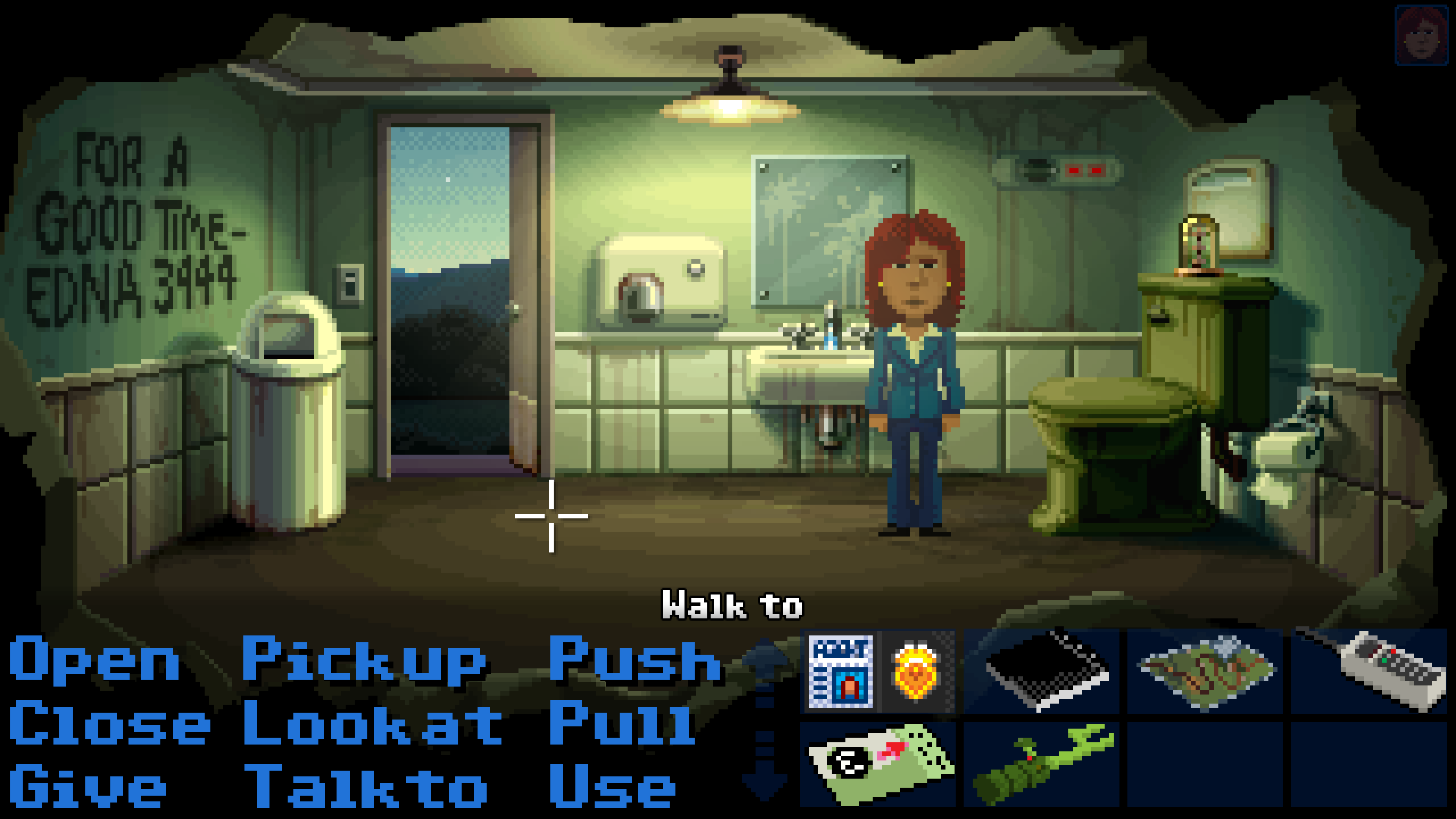
‘Adventure game logic’ has become something of a derogatory term, but I was glad to discover that Thimbleweed Park’s puzzle solutions rarely require the absurd leaps of logic that would have you dialling the LucasArts hint line in the ‘90s. There are a couple of eyebrow-raisers, but it wouldn’t be an adventure game without them. The important thing is that it never feels like it’s being deliberately obscure just to make your life needlessly difficult.
Humour is the glue that holds everything together in adventure games, and while Thimbleweed Park is funny, I found that it lacks some of the warmth and charm of games like Monkey Island. It’s overly self-referential at times, clumsily bulldozing the fourth wall, and relies a little too much on sarcasm over actual jokes. But a cast of weird, colourful characters, witty dialogue, and a compelling central mystery kept me interested all the way through.
It's a game that dips into the past, but doesn’t use it as a crutch, managing to capture the essence of classic adventures while avoiding some of the things that made them frustrating. I would have liked to see more of a connection between the characters, who never really interact other than to swap items. And sometimes the story gets a little too meta for its own good. But otherwise this is one of the best modern point-and-click adventures on PC.
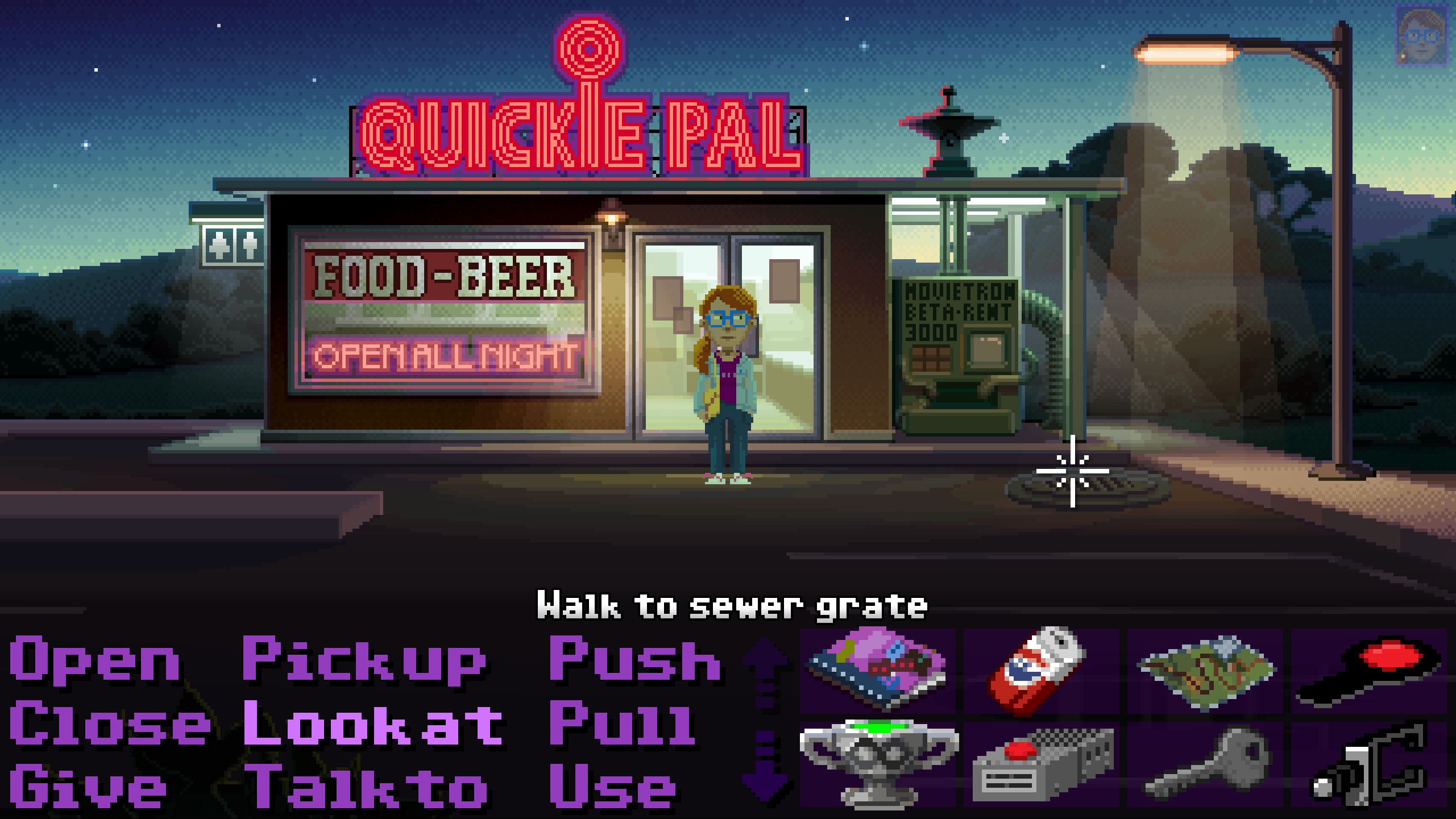
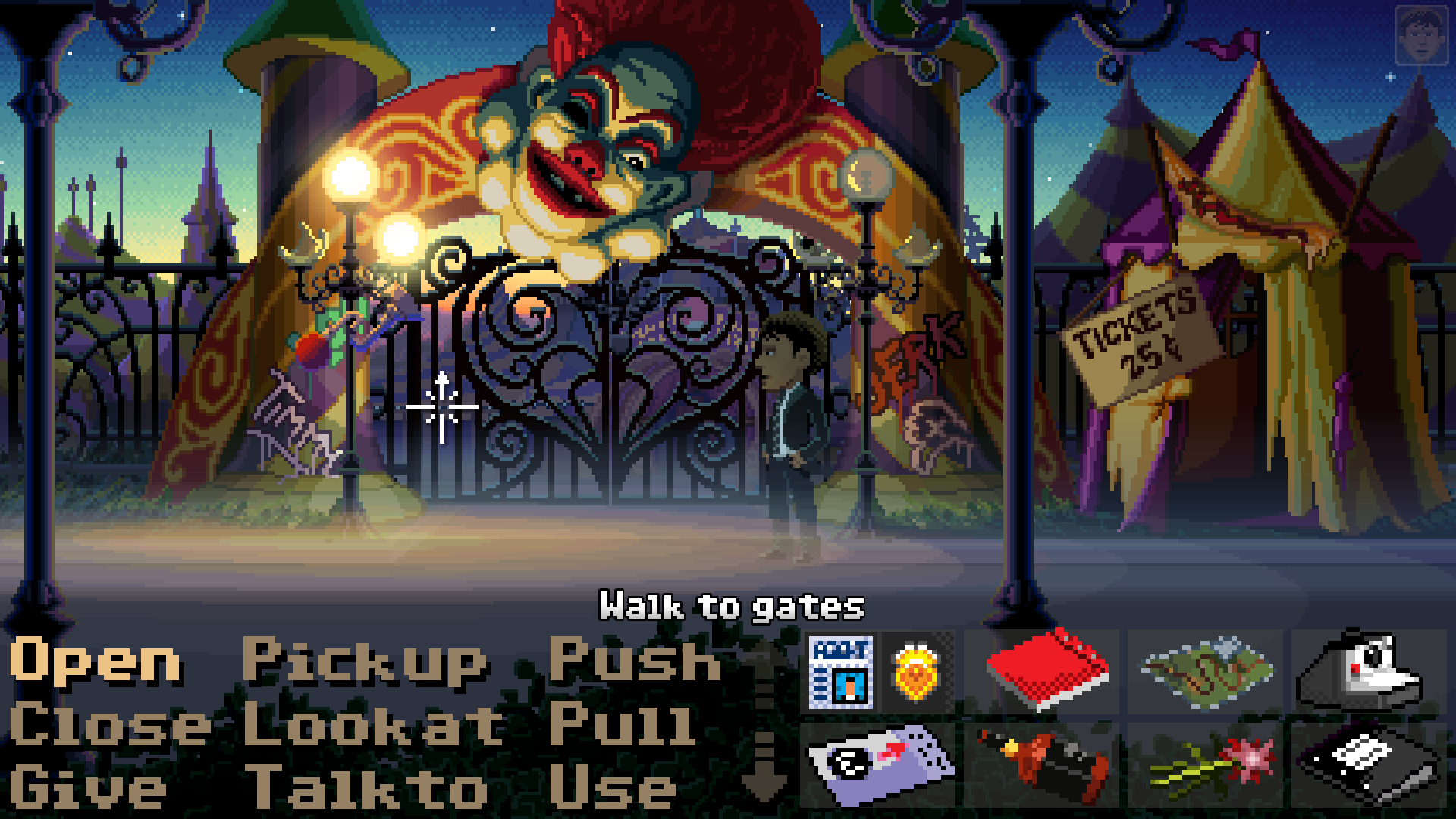
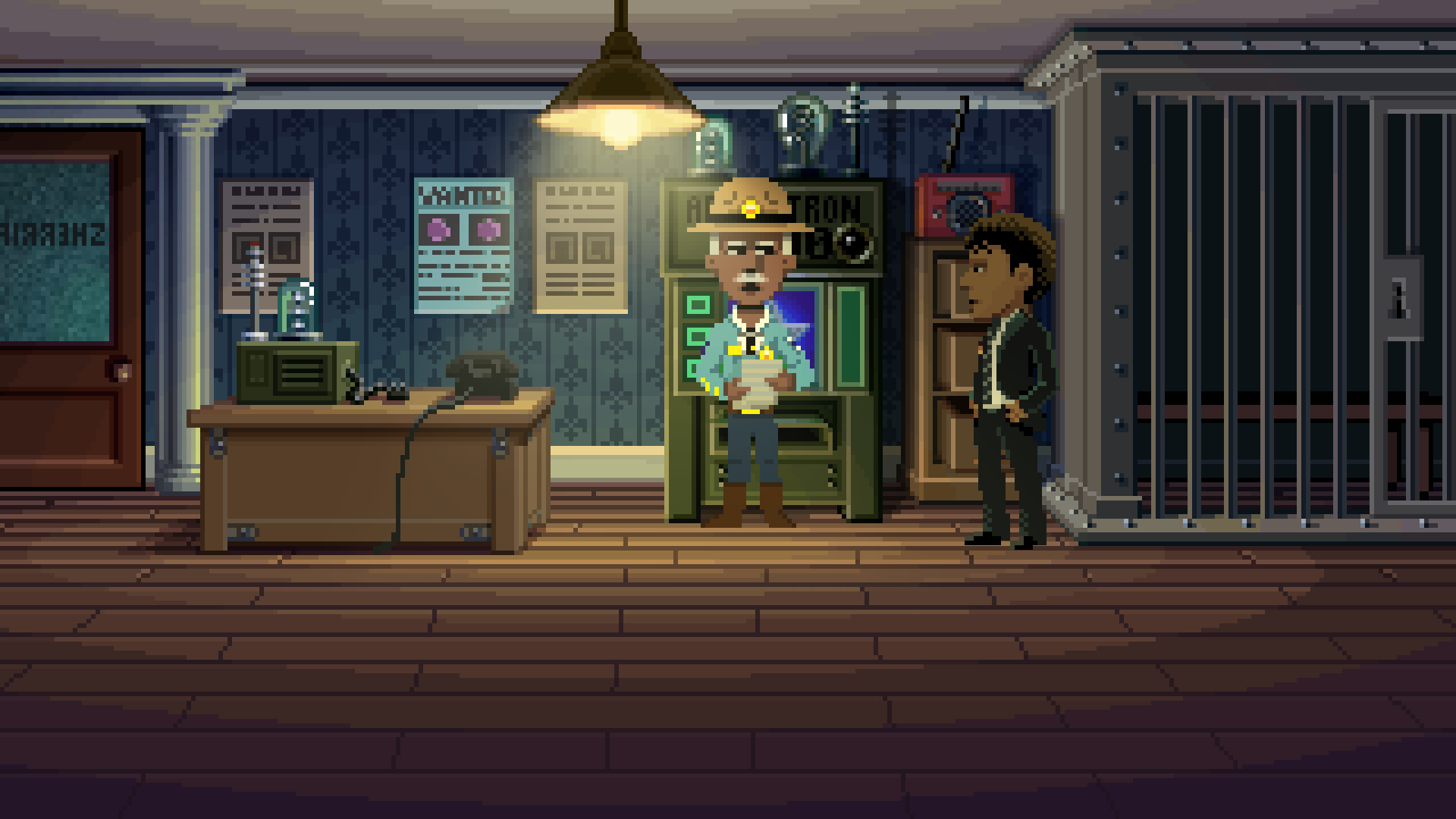
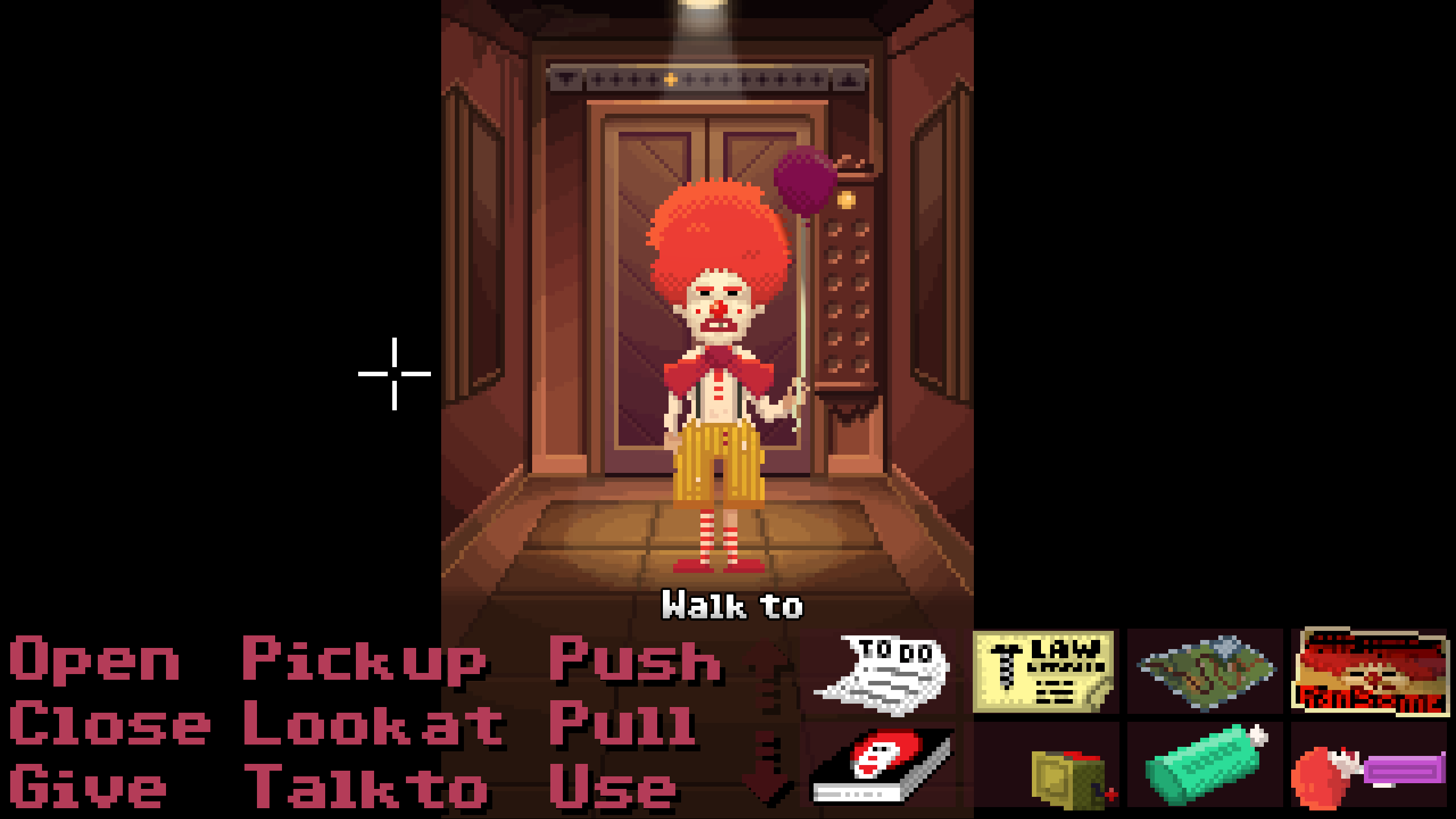
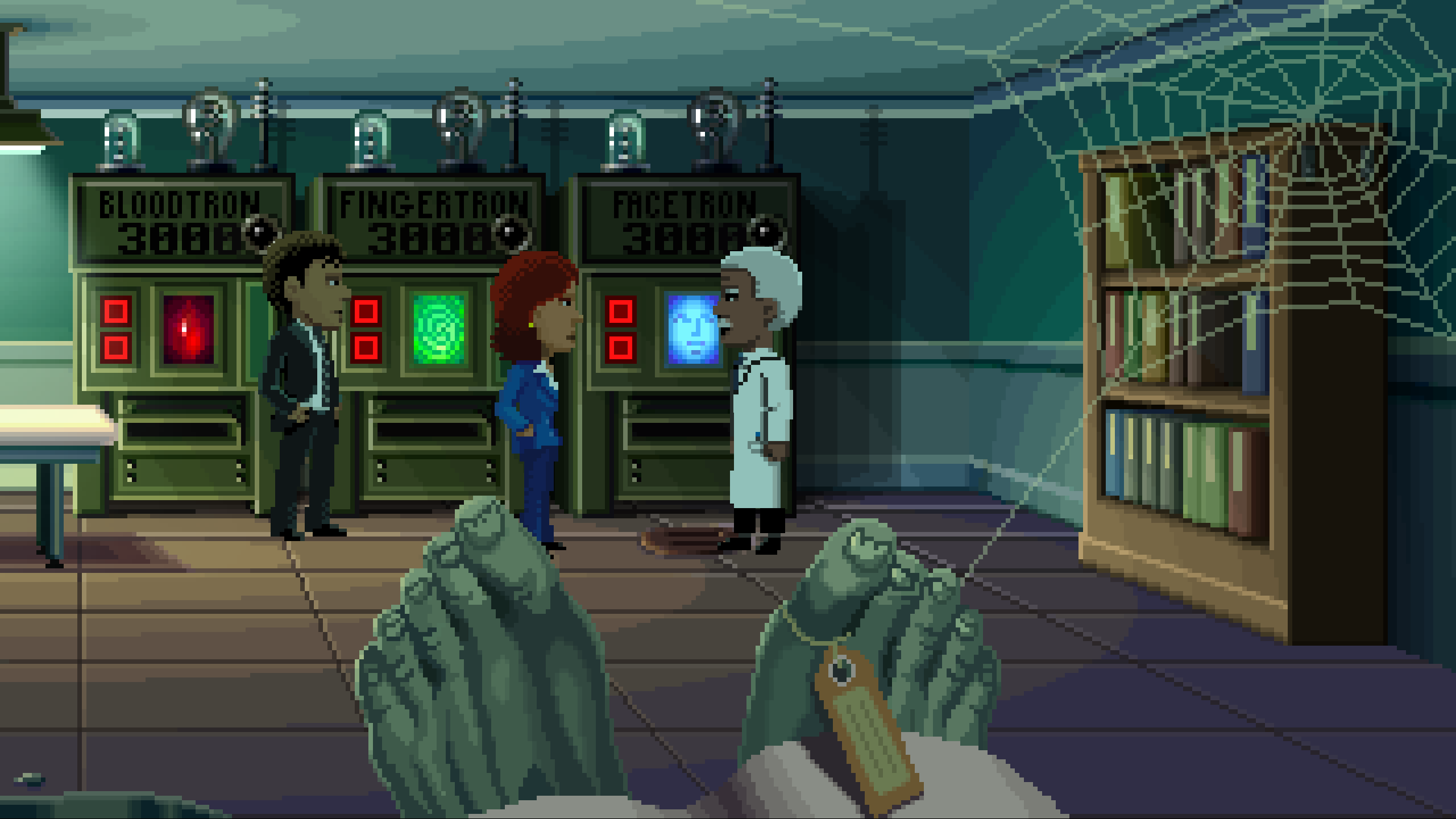
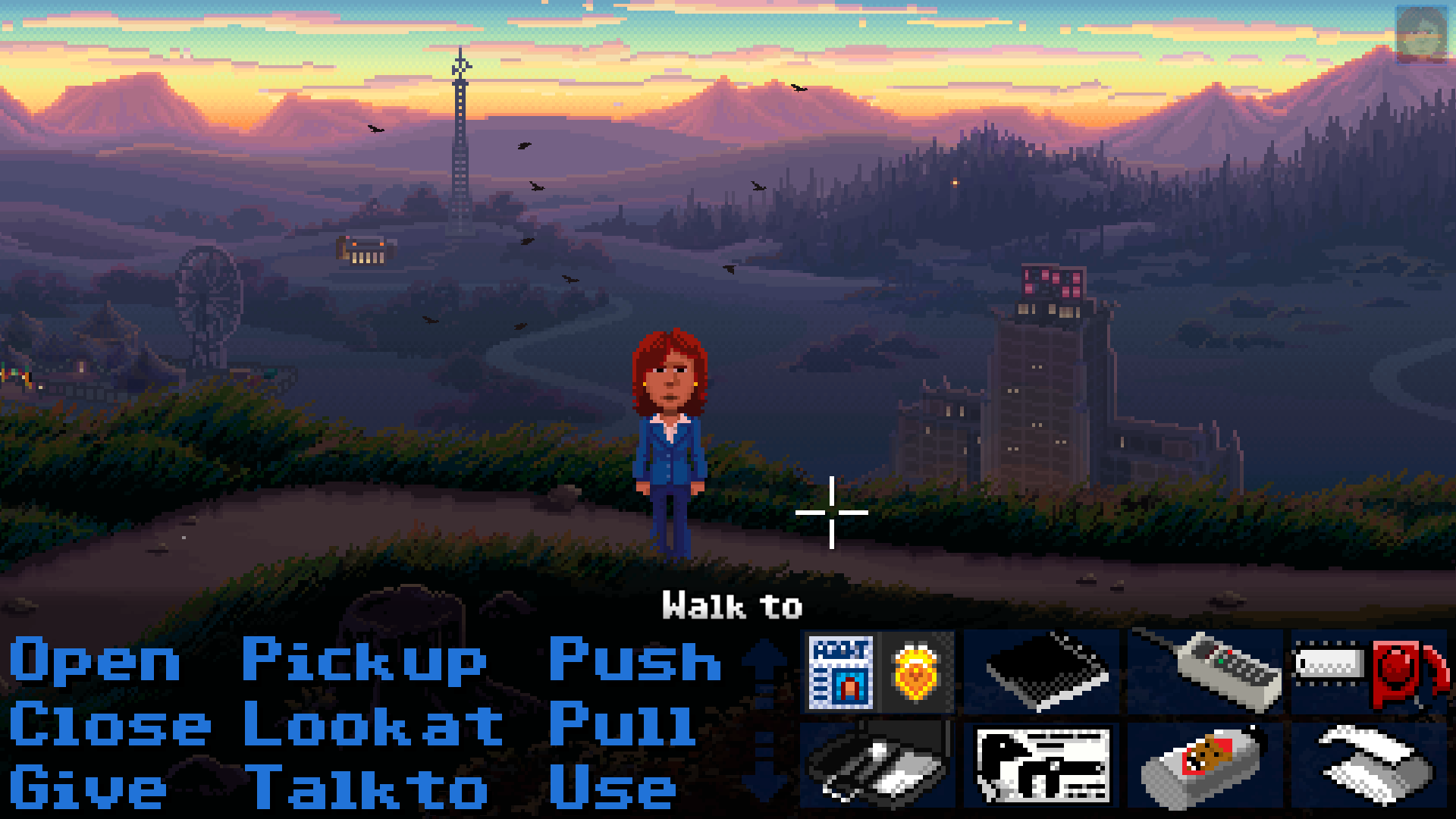
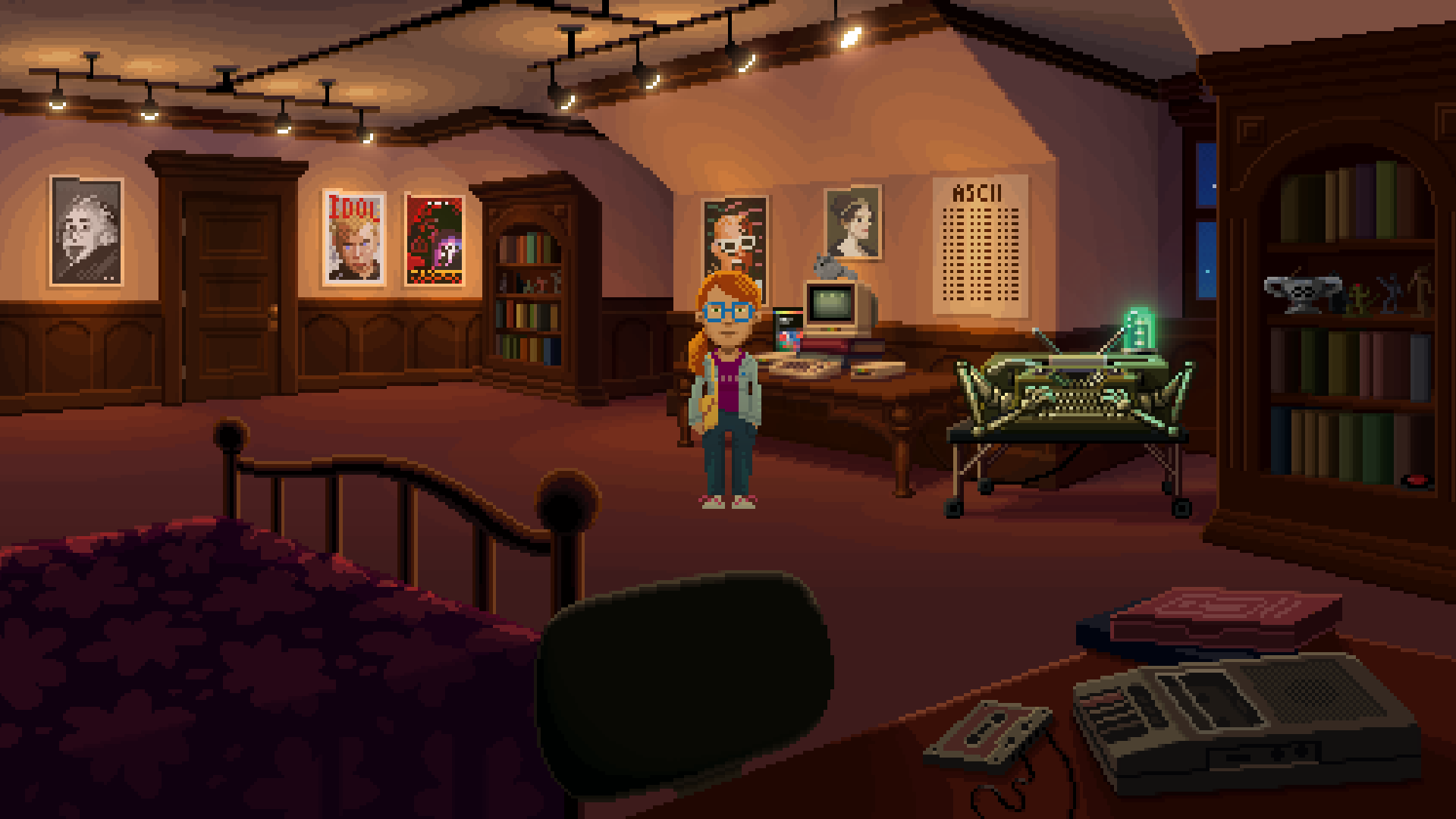
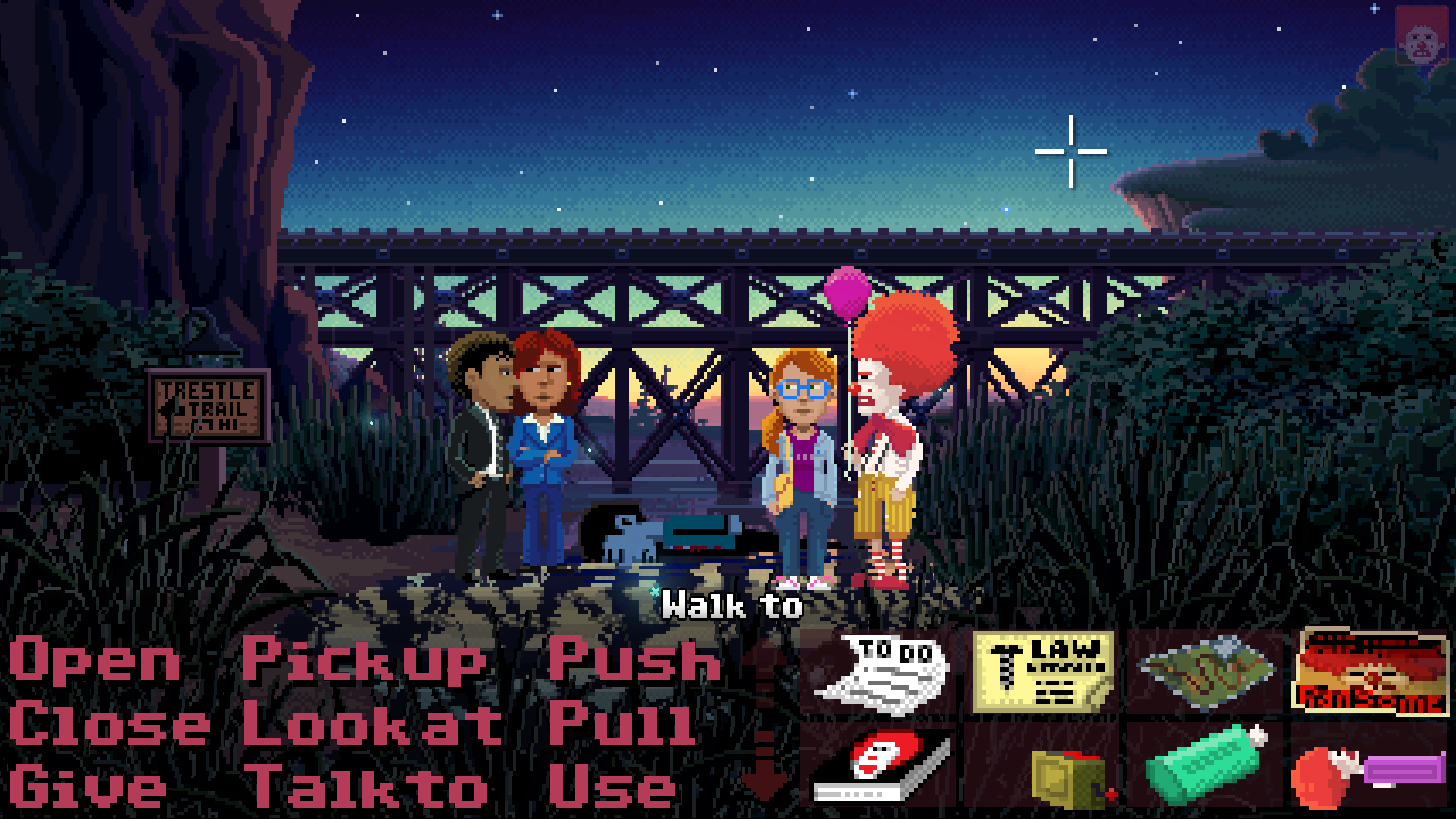
A quality adventure game with challenging puzzles, oddball characters, and an intriguing, mystery-laden plot.
If it’s set in space, Andy will probably write about it. He loves sci-fi, adventure games, taking screenshots, Twin Peaks, weird sims, Alien: Isolation, and anything with a good story.
